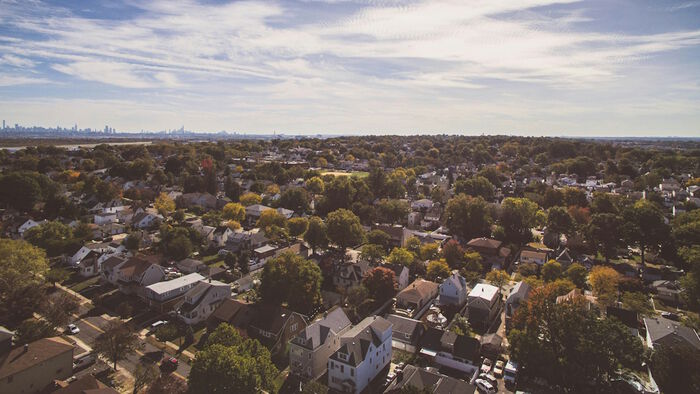Considerable hope has been placed in (new) localism as a safeguard against the global successes of the far right. However, the case of the most prominent German localist politician, Boris Palmer, demonstrates the dangers inherent in a depoliticised and solely solution-oriented politics of place. This post discusses the potential and limitations of the concept of localism in understanding the creeping processes of far-right normalisation.
In May this year, a heated discussion on “freedom of speech” once again ramped up in German feuilleton pages. This new round of culture wars was triggered by a bizarre scene, captured in a video widely shared on Twitter. It shows Boris Palmer, mayor of Tübingen, a city of 90,000, among a small group of picketers demonstrating against a conference on migration governance to which he had been invited to speak. The visibly agitated Palmer tells a black person that he will continue to use the N-word, saying it out loud into the microphone. After facing opposition from the demonstrators, he told the activists the accusation of racism would stick with him like “the Star of David” that Jews were forced to wear during the Third Reich. He says this sentence on the former site of the chemical company IG Farben, which produced and supplied the poison gas Zyklon B for the industrially organised murder of millions of people and operated the first privately financed concentration camp at Auschwitz III - now part of the campus of the University of Frankfurt, where the conference was being held. Later, on the podium, Mr. Palmer insisted on using the N-word a few more times, repeating the word five times in 45 seconds.
The localist bridge from green to brown?
Why has this incident not simply been dismissed as an embarrassing, racist and Holocaust-relativising outburst by a provincial bureaucrat, but become the centre of a national debate? An important part of the answer is that the figure of Palmer represents something larger, namely an emerging new localism that could redefine the political landscape and provide an often-overlooked opportunity structure for the normalisation of far-right ideologies. And, as we can see from recent events, the far right does not even have to do much for it: in face of the latest polls, which put the AfD's support in eastern Germany at 32 percent, a conservative mayor proposed abolishing the proclaimed cordon sanitaire at state level. His local cooperation with AfD supposedly shows that good issue politics is not to be judged by party affiliation - even if it is far-right.
There are at least three dimensions to consider in this regard. Firstly, localism involves reframing contentious issues within the context of the local community, allowing for a localised perspective, “non-ideological” and practical debates and potential resolution – independent from political cleavages at a national scale. Secondly, localism extends beyond the well-described "Not In My Backyard" (NIMBY) mentality by offering specific local responses to various crises (and - in the case of the ”migration crisis”, for example - by upscaling them into offers for national policies). Lastly, localism can set the stage for new notions of community that cut across traditional forms of nativism or nationalism. As such, localism contains multiple opportunities but also dangers for progressive forms of local and national democracy, exemplified by Palmer's political career.
Boris Palmer joined the Green arty in 1996 and, after some years as Member of the State Parliament, was first elected mayor of the 88th largest German town ten years later, holding this position until today. Although his standing within the party has suffered massively over the past decade, he has emerged as one of the best-known politicians at the national level, and his local support has only grown. Running independently, Palmer won last year’s re-election against an official candidate backed by all non-municipal bodies of the Green Party. When outsiders question why he is consistently elected in Tübingen, the recurring answer tends to revolve around the effectiveness of his policies. This can for instance be observed through a notable influx of companies which choose to establish themselves in Tübingen, leading to increased trade tax revenues. Additionally, the city's commitment to climate protection has played a significant role. With the aim of achieving climate neutrality by 2030, Tübingen's dedication to addressing environmental concerns resonates with its residents, contributing to their continued support at the polls. Nationally Palmer became famous through prime-time talk shows and interviews in the main national newspapers, where he took a stance against the federal government's migration policy without resorting to typical far-right narratives but arguing from a perspective of "healthy pragmatism" and the "common sense of local everyday life".
Now, after his latest gaffe, his exit from the Green Party became known on 1 May. A parliamentary director of the populist radical right party Alternative für Deutschland (AfD) offered him membership almost immediately after the news broke. Even though it is very unlikely that we will see a green-brown party transition here, it underlines the important fact that the localist gesture which frames politicians like Palmer as authentic and rigorous can re-articulate far-right positions and promote them to a broader audience. So, what then does localism actually mean, and what are its often-overseen implications for far-right normalisation, not only in Germany, but globally?
Localism as a concept in populism studies and beyond
The debate about what localism means has waxed and waned in different contexts over the past decades. For example, it has been discussed as a grassroot tactic against environmental and climate devastation from the 1980s onwards, as a regulatory approach to crisis-ridden globalisation during the ‘90s, or as a neo-liberal arrangement of governmentability (especially in the UK) in the late ‘00s – exemplifying the political vagueness of the term. More recently some populism scholars have proclaimed a “localist turn in populism studies” as populist parties get normalised and are continuously able to mobilise at all levels of society and government. They understand localism as a “set of practices, claims, and discourses that render ‘the local’ politically salient; that is, an ideational politics of place” and argue that different arrangements of localism can foster different political attitudes and consequently distinct partisan support. It is assumed that individuals who articulate a connection solely with their local community tend to show greater support for right-wing populist agendas, whereas those who actively participate in their local community are expected to be less inclined to these ideologies.
In our own research results, however, this binary distinction between a discursive and a lived form of localism as a strong predictor for overall political attitudes proves to be too simplistic. The Geographer Doreen Massey argues that similar to the global, the local is also shaped by power-laden social relationships and its political essence is determined by the specific way it is constructed: “we must argue about the form of any particular localism”.
Progressive and defensive forms of localism
Numerous authors have highlighted how solution-oriented local politics can undermine the appeal of radical right populists. For instance, mayors such as Greg Fischer of Louisville, as described in the book The New Localism: How Cities Can Thrive in the Age of Populism, have countered the prevailing trend of right-wing populism by advocating politics based on “comity and sanity”. However, when scaling up, this perspective often falls short in its analysis, as populism is primarily viewed as a problem for the unhindered expansion of networked financial and trade flows. This argument overlooks the fact that within the current global system, uneven spatial development will persist. While some local economies may thrive, their success often relies not only on internal exploitation but also on the extraction of resources from other regions and the advantage they hold in the global competition. This inherently favours defensively oriented and exclusive forms of localism. The promotion of localism as a cure against authoritarian temptation, solely to sustain global neoliberal structures, fails to address the underlying causes of far-right sentiment.
To prevent figures like Boris Palmer from shaping localism in a defensive manner, as a tactic to safeguard a small, supposedly idyllic world against external threats, there is a need to embrace open and inclusive models of localist politics. As mentioned earlier, there is no universal blueprint for this approach. As Doreen Massey argues, every form of the local remains contested. Despite the structural challenges, local mayors, activists, and engaged individuals on a day-to-day level create small localist utopic politics, shaping open and progressive understandings of community, that impede the advance of the radical right. There is hope in global initiatives such as sanctuary cities, which mitigate the damage of restrictive migration policies at the local level, by limiting the extent to which they help enforce immigration law. Or in regional phenomena, such as when social democrats and conservatives in AfD strongholds in eastern Germany put aside their differences to unite behind a candidate and keep the far right out of power. Or when citizens in small rural towns overcome internal divisions and stand up to a seemingly overwhelming right-wing mob in support of refugees.
(New) Localism should thus be understood as an ambivalent, trending political phenomenon that keep alive the hope of progressive and innovative responses to global crises. But in times of excessive intra-regional competition and uneven development, localist rationales can easily be used to disguise exclusivist and nativist attitudes and to create a defensive politics of space. It is up to all of us in our own local everyday life to expose such small-scale instances of the creeping normalisation of far-right ideology that it is.
.jpg)

.jpg?alt=listing)


